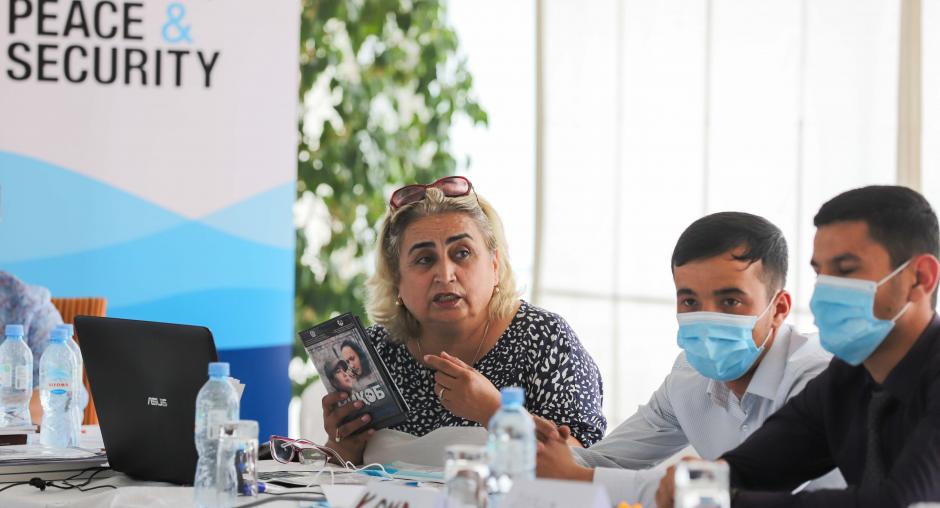OSCE concludes training course on legal support to victims of domestic violence for Women Resource Centres lawyers and local authorities in Tajikistan

A four-day training course for lawyers from the OSCE-supported Women’s Resource Centres (WRCs) and local authorities was organized by the OSCE Programme Office in Dushanbe from 27 to 30 April in Dushanbe. The event brought together 23 participants from the Sughd, Khatlon, Rasht Valley regions, and Gorno-Badakhshan Autonomous Region of Tajikistan.
Specialized trainers/attorneys with many years of hands-on domestic violence law experience delivered the course.
During the course participants were familiarized with the legislative framework in the field of prevention of domestic violence, international and national mechanisms, identification of domestic violence and skills of working with victims of domestic violence. Other topic covered was redirecting mechanisms and mechanisms of recovering materials and moral compensation to victims of domestic violence in criminal and administrative cases. Participants had a hand-on exercises and group works which helped them to discuss issues and find solutions.
Komronbek Gulov, a representative of the Commission on the Rights of the Child under the Khuroson District Executive Body found useful that during the course he was able to receive concrete advice on the issues and gaps existing at the district level.
“The training provided new knowledge on the issues of alimony and taking children out of Tajikistan without the other parent’s consent. A group work was organized on specific cases which are very common in our work,” said Khurshedakhon Muminzoda, WRC lawyer from the Association of Scientific and Technical Intelligentsia of Tajikistan in Khujand adding that she will be able to apply this knowledge in practice.
The OSCE Programme Office will continue to support the Government of Tajikistan in implementing the Law on Prevention of Domestic Violence. The Programme Office provides a comprehensive support to victims of domestic violence in the regions through a network of 14 OSCE-established WRCs in close partnership with local authorities.
The current activity is being implemented within the WRCs project of the OSCE Programme Office funded by Norway, the United States of America, Finland, the European Union, Andorra and Germany.
